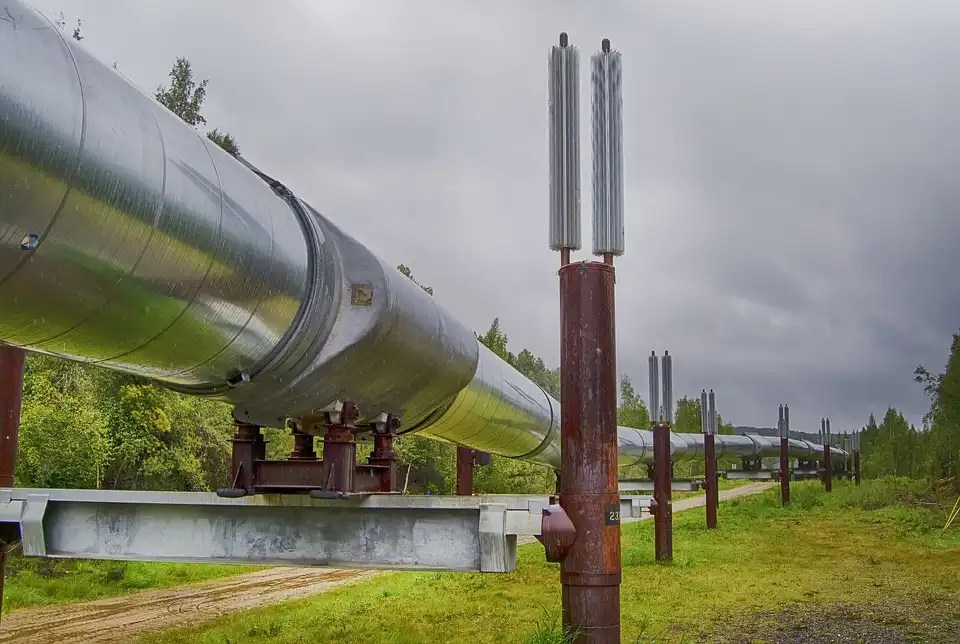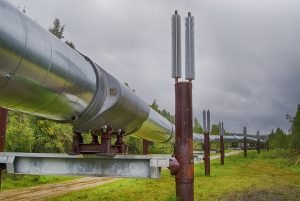
Nigeria is one of the few African countries that have commercially marketable oil within its soils. The discovery of oil in Nigeria in 1956 at Oloibiri in the Niger Delta marked an economic turn for the country and a big-time success for the explorers who had been relentless in their half a century quest for oil.
Ever since, Nigeria became one of the richest countries in Africa and went on to be called the “Giant of Africa”. It also boasts of a GDP that surpasses all other African countries. However, not every State in Nigeria is blessed with oil and not every State that has oil is blessed equally.
It is a fact that some States produce more oil than others and some of these States produce less than 5% of the total oil found in the country. As at 2024, Nigeria’s maximum production capacity stands at about 2.5 million barrels per day which makes the country Africa’s biggest oil producer.
In this post, you are going to find the top 10 oil producing States in Nigeria including the total number of barrels produced per day by these States but before delving into that we would like to list the factors influencing the production capacities of the states producing oil in Nigeria. By listing the state with the highest production of crud oil per day, we can literally refer to the state as one of the richest state in Nigeria because of the federal sharing principle of derivation.
Factors Affecting Crude Oil Production In Nigeria As At Today
Talking about crude oil production per day in Nigeria, there are several factors that affect these oil producing states in Nigeria;
a) Militancy
The presence of militant activities in these region is a major blow in crude oil production in Nigeria. This affects the number of supposed barrels per day because these set of people blow up production facilities, pipelines and kidnap both local and foreign experts thus reducing the supposed barrels per day and in turn affecting negatively, inflow of foreign exchange, that is trade balance.
b) Political Instability
When the polity is unstable, every business gets affected. Foreigners are scared of investing in Nigeria and the current investors put starts transferring their funds out for fear of losing them. The oil sector which is Nigeria’s major source of income unfortunately is managed by foreigners thus making it difficult to go out their daily routine and this in turn affects crude oil production in Nigeria.
c) International Relations
Since oil is Nigeria’s major source of foreign exchange, Nigeria’s international dealings with Organization of the Petroleum Exporting Countries has a direct impact on Nigeria’s crude oil production hence the relationship between Nigeria and these countries must be kept intact.
d) Other factors includes the prices of crude oil in the international market and the demand for the product too has a direct relationship between the barrels produced daily and the demand by foreign countries.

Top 10 Oil Producing States In Nigeria (2024)
1. Akwa Ibom State – 504,000 barrels per day
Akwa Ibom State is the largest oil producing State in Nigeria and accounts for more than 20% of the total barrels produced in Nigeria on a daily basis.
During the early exploration of oil, crude oil was first discovered at Ikot Akata in what is now Akwa Ibom State. This marked the discovery of crude oil in the Niger Delta. However, commercially marketable oil was discovered in Olobiri in what is now Bayelsa State. Today, Akwa Ibom still stasnds ahead of Bayelsa State as the largest oil producing State due to the presence of large oil and gas companies like Exxon/Mobil which operates in the State. The State also boasts of one of the largest production facilities in the Niger Delta and several other smaller production facilities
Akwa Ibom State is located in the South-South region of Nigeria and is the 8th largest State in Nigeria by GDP. Akwa Ibom has a population of over 5 million people with over 500,000 of these people living in its capital alone. The inhabitants of the State are predominantly Christian and most of them are of the 5 main ethnic groups, Ibibio, Annang, Oron, Eket, Obolo.
Apart from that fact that it is the largest oil producing State in Nigeria, Akwa Ibom is also known to be endowed with various minerals resources which include natural gas, clay, limestone, giver nitrate, salt, coal, and glass sand.
2. Delta State – 346,000 barrels per day
Delta State ranks as the second largest oil producing State in Nigeria with a production capacity of 346,000 per day. Oil production is known to be one of the main resources that drive the State’s economy, however, it has also destroyed the means of livelihood of some inhabitants of the State. This is due to oil spills which destroy soil thereby damaging plants. These oil spills also contaminate water thereby making it unfit for drinking and killing aquatic life. Fortunately, there have been measures to correct this by the government in recent years.
Apart from oil, the State is also endowed with several other natural resources like industrial clay, lignite, silica, tar sand, limestone, and kaolin.
Delta State is located in the South-South region of the country with a population of over 4 million people. Its capital is Asaba which is located at the northern end of the State. The State has an economic nerve center, Warri which is also the most populated city in the State.
The main ethnic groups in Delta State are the Urhobos, Ijaw, Izon, Isoko, Itsekiri, Ukwuani and Anioma.
3. Rivers State – 344,000 barrels per day
Rivers State was once the largest oil producing State in Nigeria followed closely by Delta State. This was until Akwa Ibom State was able to increase its oil production and surpass both Delta and Rivers State to become the largest oil producing State in Nigeria.
However, Rivers State is still considered the powerhouse of the oil industry in Nigeria. The State has two major oil refineries, two major seaports and produces more than 60% of the country’s output of crude oil.
Rivers State has a population of over 7 million people with most of them living at its capital Port Harcourt. The State is also known for agriculture and many of its inhabitants are either commercial or subsistence farmers.
There are about 26 ethnic groups recognized in the State with the main ethnic groups being the Ukwuani-Aboh-Ndoni, Ogoni, Ogba, Obolo, Kalabari, Ikwerre, and Ijaw. The State is known to have one of the highest literacy rates among the South-South States of Nigeria
Apart from oil, the State is also endowed with several other natural resources like silica sand, clay and glass sand.
4. Bayelsa State – 290,000 barrels per day
Bayelsa is another South-Southern State in Nigeria and also one of the largest oil producing States in the country. It was in Bayelsa State that oil was first discovered and this lead to discoveries in other States.
Bayelsa has one of the largest crude oil and natural gas deposits in Nigeria and accounts for about 18% of the oil produced by the country. The State which was carved out of Rivers and Delta State is relatively less developed than its neighboring States even with the presence of oil.
The State is also one of the least populated in Nigeria with just about 1.7 million inhabitants who are mostly rural dwellers relying on fishing to survive. The State’s capital is Yenagoa and is one of the most important cities in the State.
Bayelsa is dominated by mainly the Ijaw ethnic group with dialects like Mein, Bomu, Epie-Atisa, Nembe, Kolukuma, and Ogbia.
Apart from oil, deposits of minerals sources like zinc, gypsum, lignite, clay, manganese, uranium and limestone can be found in the State.
5. Ondo State – 60,000 barrels per day
Ondo State accounts for just 3.7% of the total oil produced in the country and therefore it occupies the 5th position among the largest oil producing States in Nigeria.
The State is located in the South-Western part of Nigeria and is one of the oldest States in Nigeria. Ondo State is heavily dominated by the Yoruba from subgroups of the Akure, Okitipupa, Akoko, Ilaje, Odono and Owo people. The State also boasts a high number of tertiary institutions which is common among States in the South West.
Ondo State is one of the least populated States with a population of over 3 million people in 18 local governments. The capital of Ondo State is Akure which is the most important city in the State. The people of Ondo State are mostly educated and most of them reside in the urban areas of the State.
The State is endowed with several other mineral resources like coal, limestone, bitumen, kaolin, gemstone, granite, glass sand, gypsum, feldspar, and clay.
6. Lagos State – 40,000 barrels per day
Lagos State is the smallest State in Nigeria when talking about land mass, however, it is the most economically important State in the country and the major financial center of the country. Even though the State is not among the top 5 largest oil producing States in Nigeria, it is one of the few States that is well developed among our list.
Lagos State is considered to be the 5th largest economy in Africa and would have officially been bestowed this title if it were a country.
Lagos State is the second most populous State in Nigeria, however, it tops the list of States with the highest number of migrants on a daily basis.
Lagos is dominated by the Yoruba speaking people and its subgroups, however, the State is filled with several other ethnic groups who have migrated from all parts of the country seeking for greener pastures.
Lagos State s also endowed with several other mineral deposits like clay, bitumen and glass sand. Despite this, the State is mostly known as a financial and entertainment center as it features the headquarters of most of the big banks in the country and is also a top location for many Nigerian celebrities.
7. Edo State – 33,000 barrels per day
Edo State is one of the largest oil producing State which accounts for about 1.5% of the total crude oil output in Nigeria. The State like most other States in our list is located in the South-Southern part of Nigeria.
Edo State has some of the most important tourist’s attractions in Nigeria which is another sector that drives its economy. Such tourist’s attractions include the Emotan Statue in Benin City, Ambrose Alli Square, Ekpoma, River Niger Beaches at Illushi and Ise Lake in Agenebode. The State’s capital is Benin City which is one of the historical cities of Nigeria.
Edo State has a population of about 8 million people and is dominated by 4 major ethnic groups; namely Edo, Esan, Owan and Etsako.
Edo State also has several other mineral deposits like gold, iron ore, lignite, clay, glass sand, bitumen, marble, gypsum, phosphate, and limestone.
8. Imo State – 10,000 barrels per day
Imo State has over 163 oil wells at over 13 different locations in the State which now produce about 10,000 barrels of oil per day. This drop is as a result of the activities on the IPOB (Indigenous People of Biafra) a group agitating for secession from Nigeria. The State accounts for just less than 0.5% of the total crude oil produced in Nigeria.
The production of crude oil is overseen by top oil and gas companies like Chevron Corporation, Royal Dutch Shell, Addax Petroleum and Agip.
Imo State is located in the South-East area of Nigeria and is one of the economic powerhouses of the South-East and Nigeria.
The State is notable for attracting investments especially from foreign companies and investors which is why it is one of the bubbling States in the country.
Imo State has a population of over 4 million people living in its 27 local governments. Apart from oil, the State has other mineral deposits like lead, calcium carbonate and zinc.
9. Abia State – 12,000 barrels per day
Abia State is another south-eastern State producing a significant percentage of Nigeria’s crude oil. Abia State has about 100 oil wells and 3 installed flow stations in the State. As of 2012, the State was producing 36.000 barrels of crude oil per day, however, poor funding and other predicaments saw its rate of oil production drop significantly.
Abia State’s economy is driven by crude oil and gas production which accounts for over 39% of the State GDP. The State has several other sectors driving its economy like the manufacturing sector which accounts for 2% of its GDP and agriculture which accounts for 27% of its GDP.
The capital of Abia State is Umuahia, however, its commercial center is in Aba where most of the manufacturing companies are situated. This is also the location you can find big popular markets in the State.
10. Anambra State – 2,000 barrels per day
Anambra State is a growing oil-producing State as it was declared so in 2012. The State now produces just about 2,000 barrels per day because of the activities of the ESN (Eastern Security Network). Though this does not account for much of the total oil produced in the country, however, it has the capacity to increase production to over 55,000 barrels per day. The State’s oil reserves are mostly controlled by the private refinery, Orient Petroleum Refinery (OPR), however, other oil and gas companies have been given the chance to drill oil from the State.
Anambra State has a thriving economy driven by crude oil natural gas and other mineral resources. Agriculture is another thriving sector in the State and accounts for a significant part of its GDP.
Anambra State has a population of over 4 million people and is dominated by the Igbo people. The State has the lowest poverty rate in Nigeria.
That concludes the list of the top 10 oil producing States in Nigeria and the barrels produced per day for 2024. Looking above, you will find out that States from the South-South part of Nigeria dominate the oil market and produce most of the nation’s oil. States from the South-East, on the other hand, account for the least of the oil produced in the country.
What is your input as regards the above? Please feel free to send the to us via the comment section and we shall respond accordingly.




